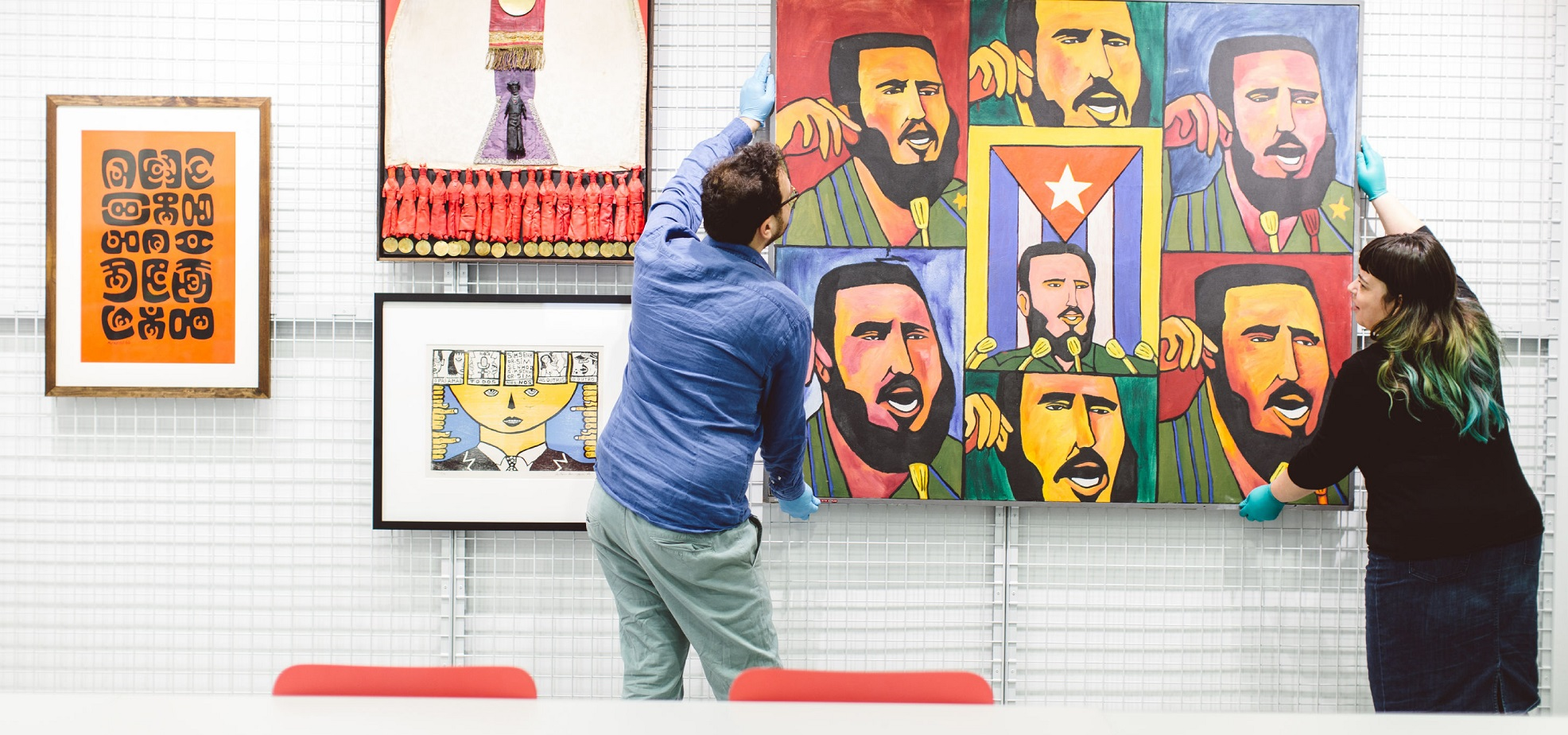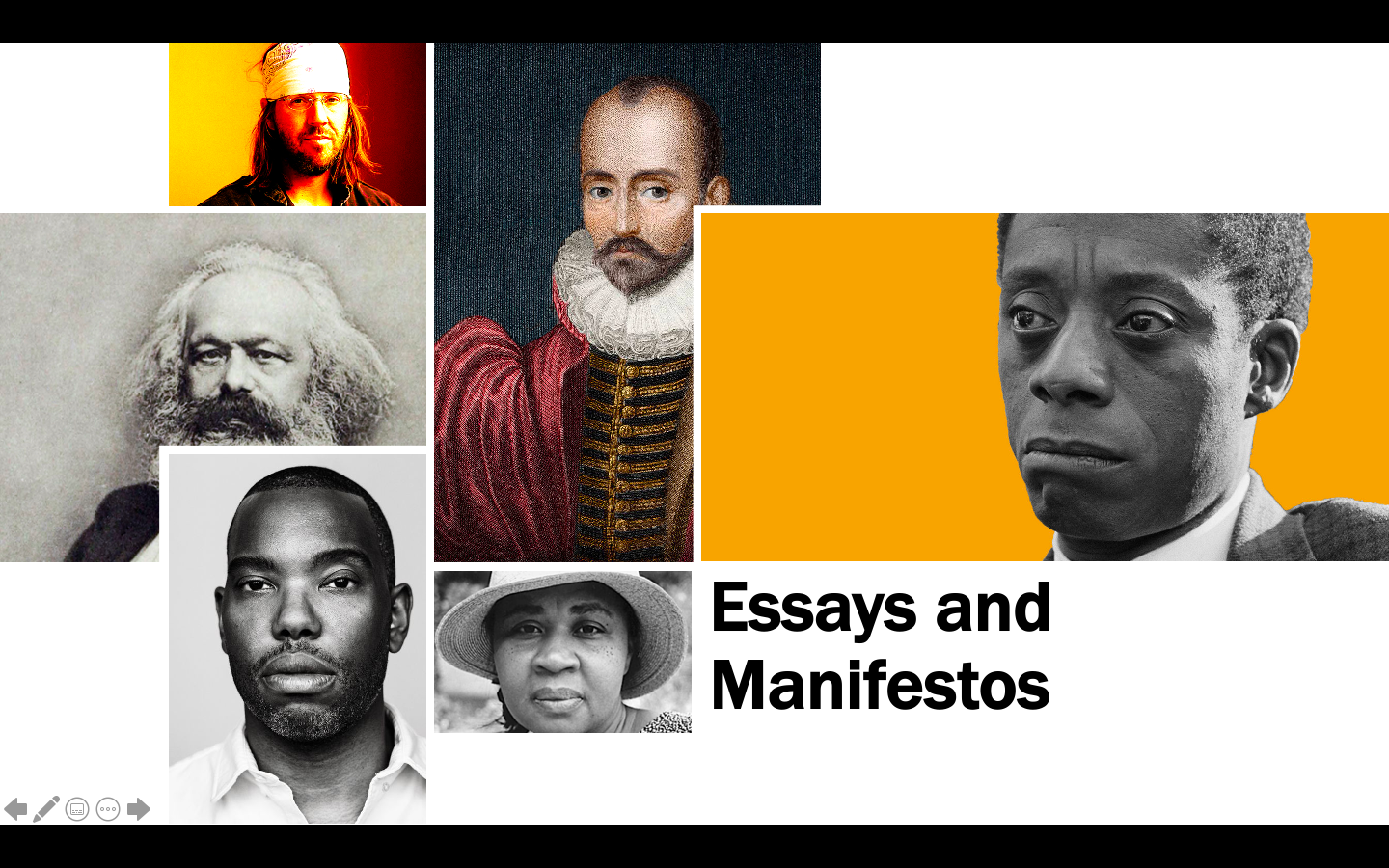
The Enlightenment (roughly 1650-1800) was a politically and intellectually revolutionary period of history that defined the ideas that continue to shape the way we see ourselves and the world we live in--ideas like democracy, free speech, individualism, scientific evidence, free markets, and human rights. By examining this period, this module provides students with a crucial framework for understanding today's dominant intellectual currents--a framework that proves remarkably useful for students in their second- and third-year coursework. Indeed, graduating students often rank it among the most useful modules they've taken. Built on a spine of lectures delivered by staff from across the Faculty of Humanities and the Social Sciences, this interdisciplinary module covers the aftermath of the Scientific Revolution, the English Revolution, social contract theory, the great age of discovery and exploration, the American Revolution, the roots of capitalism, the origins of modern law and medicine, Rousseau's critique of wealth inequality, the French Revolution, Burke and Paine's debate over human rights, and Wollstonecraft's early feminism.
- Module Supervisor: Fabian Freyenhagen
- Module Supervisor: Joerg Schaub

This first year half-module runs in the Spring term and provides an introduction to contemporary Latin America life, offering insights into major trends and processes that have shaped realities in the region from the second half of the 20th century up to the present day. Taught by academics who are experts in different fields, the module brings Latin America into focus through an interdisciplinary lens. As such, you will gain insights into a broad range of studies and concepts, drawn from economics, politics, art history, literature, as well as sociology, contemporary history, and human rights.
Each week’s lecture and seminar provides an opportunity to explore and discuss a specific core topic. These topics will span diverse issues, such as the impact of globalisation and neoliberalism; the struggle for democratisation; the shifting trends of migration; the development of tourism, conflicts over extraction and the environment; among others. As well as engaging with scholarly texts, we will also examine ways that the rich cultural production of Latin America and the Caribbean addresses the topics explored in the module, by engaging with films, documentaries, literature and artworks, including those held at Essex’s unique on campus resource, the Essex Collection of Art from Latin America (ESCALA), which is the largest collection outside Latin America.
You do not need to know anything about Latin America to do this half-module. All you need is an interest in learning more about recent trends and processes that have shaped contemporary Latin American life.
AIMS
The aims of this module are:
• To introduce students to some of the broad social, cultural, economic, and political processes and trends that have shaped contemporary Latin America;
• To introduce students to the ways that artists, writers and film-makers have engaged with these trends and processes;
• To foster understanding about the links between micro-and macro processes and the similarities and differences in the ways they are lived in different Latin American countries;
• To encourage students to think in an interdisciplinary way, drawing on core concepts from relevant disciplines.
LEARNING OUTCOMES
By the end of this module the student should have:
* An interdisciplinary understanding of core trends and processes that have shaped contemporary Latin America, as well as knowledge of some recent works of art, literature, and film that cast light on the these;
* A preliminary grasp of comparative reasoning and of the links between macro- and micro-processes.

MODULE OUTLINE
CS200 has an interdisciplinary basis and is suitable for students from any discipline. It is designed to help students gain confidence in their own knowledge and creative capabilities and how you could use these to create meaningful projects, jobs and small-scale, not-for-profit enterprises that enhance well-being. This half module combines theory and practice. It is organised around the challenges facing contemporary societies, and requires students to generate small-scale projects or organisations that relate to the real-world needs of local communities, people and the environment. These projects or organisations can have a wide-range of aims and forms. Some might involve, for example, using the arts or sport for health, therapeutic, educational or other purposes linked to enhancing the well-being of people of different ages and backgrounds. Others might focus on community-based conservation, food, transport or energy projects.
The module starts by situating recent policy emphases on social enterprise within the wider historical context of the neoliberal project, and the challenges posed by climate change and environmental degradation. Then we look at case studies of social enterprises, citizens' initiatives and company policies oriented to sustainability: local food, conserving biodiversity, sustainable transport and energy. Next, we discuss the concept, history and practice of social entrepreneurship, as well as ethical debates around different organisational models, and discuss case studies of not-for-profits oriented to social needs. In the later part of the module, we look at how to design, fund, and set up a small-scale project or community interest company. Then you will identify and research a particular niche according to your their interests and design a feasible project proposal or an organisational business plan for a small not-for-profit company. The knowledge, skills and experience you acquire in CS200 will also be valuable in other employment settings, such as large firms, the public sector (especially health and education), and larger NGOs and charities.
This half-module combines a range of teaching and learning methods. Most of the sessions in the first part will be taught on a lecture/class basis, whereas later sessions will be organised on a workshop basis. There will be at least one guest speaker experienced in working in this field. You are expected to attend all sessions, do all the required preparation, and take an active role in class discussions, exercises and giving feedback on presentations.
AIMS
The aims of this module are:
- To give students an understanding of the concept of social entrepreneurs, their different roles and potentials in relation to the needs of local people, communities and the environment.
- To stimulate thinking around the theory and practice of sustainability and how it relates to everyday practices and local community needs.
- To introduce students to the diverse types of small-scale, not-for-profit organisations and some of their strengths and limitations.
- To help students develop and gain confidence in their creative capabilities and ways they might use these in the labour market and to enhance well-being.
- To provide students with skills and experience of working collaboratively, and in project and organisational design.
LEARNING OUTCOMES
- By the end of this module the student should have:
- A good understanding of the topics and ideas that are covered in this module.
- Confidence in using a number of specialised concepts and terms, and in their skills and capabilities.
- The ability to discuss the material covered on the module and to demonstrate this competence through class discussion and assignments.
- An understanding of how to translate ideas into small-scale, real-world projects and organisations.
- Enhanced research, presentation, writing and employability skills.
- Module Supervisor: Jane Hindley

MODULE OUTLINE
CS201 provides an interdisciplinary examination of recent and contemporary issues arising from the Enlightenment and its 19th century offspring, industrialism and capitalism. It explores social, political and existential issues that took new shapes in the 20th and 21st centuries. This module is co-taught by academic staff from Art History, EBS, History, ISC, Law, LiFTs, Psychoanalytic Studies and Sociology. The module covers three broad themes Empire, The Self, and Nature. We start by examining Empire and look at the connections between Enlightenment thought and European expansion, colonialism and cultural domination. In Part 2, The Self, we then move on to look at how new conceptions of the self were fashioned from sociological, psychoanalytic and economic ideas. Finally, we consider the changing conceptions of Nature that have arisen from the imposition of capitalist and industrial ways of life on most of the planet. The emphasis is on both on the forces that have caused so much destruction of nature and attempts to maintain and reclaim connections with it.
AIMS:
The aims of this module are:
- To introduce students to the key ideas of the Enlightenment and its economic and political implications
- To foster understanding about the links between historical processes and their contemporary legacies
- To provide students with varied insights into the politics of empire, the formation of the modern notion of self, and the ecological impacts of how nature has historically been conceived
- To encourage students to engage in interdisciplinary thinking, drawing on methods and theories from different academic fields
LEARNING OUTCOMES:
By the end of this module the student should have:
- A broad understanding of the Enlightenment and the related phenomena of industrialism and capitalism
- The capacity to summarise and engage critically with set texts
- The ability to discuss and debate the module topics
- The ability for reasoned argumentation applied to oral and text-based presentations
- Module Supervisor: Jane Hindley
This module is designed to provide you with the practical skills required to navigate the increasingly digital world we live in, and to open up an important critical, interdisciplinary space; you will be encouraged to consider its legal, ethical, social, political, creative and economic implications.
Throughout the Autumn term, the Technology-Enhanced Learning Team (TELT) will lead a series of two-hour sessions in an IT Lab. Each session will provide training in a specific topic such as digital identities, e-safety, blogging, social media, multimedia production, and intelligent search strategies. Throughout the term, students will build a digital portfolio which will include a reflective report on their past, present and future use of technology.
- Module Supervisor: Paola Di Giuseppantonio Di Franco
- Module Supervisor: Krisztian Hofstadter

MODULE OUTLINE
Doing research is fun, and the BA dissertation can be the most rewarding part of your degree. It’s an opportunity to pursue your own interests and investigate a topic that really inspires you. CS241 is designed to help you develop your dissertation ideas and give you the methodological tools for doing research in a systematic and imaginative way. By the end of the module you will have designed a research project, written a detailed proposal, and be ready to start collecting data. Even if you decide not to do a dissertation your CS241 research training will stand you in good stead for doing research in the future, whether in post-graduate study or future careers. CS241 is complemented by CS831 The Dissertation Seminar, which runs in the final year and provides support and advice on analysing your data and dissertation writing.
MODULE ORGANISATION
CS241 comprises nine two-hour sessions, a group tutorial, and a final workshop. Most sessions combine lecturing, research exercises, and discussion. You are expected to attend all sessions, do the set readings and assignments, and participate actively in seminar discussion. There is no exam for this module; it is assessed on coursework only. Overall you should devote about 6 hours a week to module preparation and assignments.
AIMS
The aims of this module are:
- To prepare ISC students for carrying out research for their final year BA dissertations.
- To introduce students to the principles of research design, and a range of methods and sources appropriate for interdisciplinary research.
- To provide students with a general orientation to the practical problems they are likely to encounter during their dissertation research.
- To provide students with transferable research skills relevant to future careers.
LEARNING OUTCOMES
- By the end of this module the student should have:
- A grasp of the principles of research design and proposal writing
- Understanding of how to use qualitative research methods in a systematic way
- An understanding of what constitutes a feasible, ethical, BA research project
- A knowledge of relevant concepts and terms
- Module Supervisor: Jane Hindley

MODULE OUTLINE
The module will be taught by a series of one-hour lectures, and a one-hour class each week.
The module, taught by staff from across the humanities at the University, is this academic year titled ’Crisis of the American Idea’. Across a wide spectrum of political opinion one finds a shared conviction that something is amiss in the American project. Some point to Trump’s election as evidence that something has gone badly wrong. At the same time Trump’s supporters pointed to an American crisis as their reason for electing him. What they agree on is that there is indeed an American crisis underway. This module takes an extended, interdisciplinary look at The American Idea and its current crisis. We take our point of departure from an observation made by Margaret Thatcher on one of her visits to Washington DC. Europe, Thatcher claimed, was the creation of its history; America was created by philosophy. Thatcher’s observation is borne out by looking at the faces of American coins, which are thick with ideas about America: “Liberty,” “e pluribus unum,” “In God we trust.” Even the name of the nation — The United States of America — expresses a complex thought, incorporating ideas about federalism, divided self-governance, unity in plurality. A principal aim of this module will be to unpack and unpick the American Idea, both as it was expressed in the early history of the American Project and as it has been articulated in and by its subsequent history. We will then try to assess the current crisis. To what extent is it a crisis internal to the American Idea itself, and to what extent is it a failure of implementation of that idea?
LEARNING OUTCOMES
By the end of this module the student should have:
- speak and write with authority about a variety of issues relating to America's political and cultural history, particularly in relation to its foundational ideas and ideologies
- identify key historical, social, cultural, political and geographical themes that are specific to and defining of these issues in historical and contemporary discourse, particularly in regards to race, class, gender, and national identity
- discuss the relationship between ideas of (for example) liberty, freedom and, justice, and their execution in the American context
- approach topics and texts from a variety of disciplinary perspectives.
- Module Supervisor: Matt Lodder
CS300 offers final year students a unique opportunity to work together in an interdisciplinary team researching/developing/ implementing a real-world project for a local partner organisation. Partners might include a local charity, social enterprise, community or public or private sector organisations, or the University’s sustainability section. There will be at least one sustainability project each year. Other projects might involve anything from carrying out a piece of research or designing a public information campaign, to organising part of an exhibition or implementing a community initiative. This module enables you to use the knowledge and skills you’ve acquired during your degree and address a real-world challenge, while sharing and developing your creative, organisational and practical abilities. By doing so, it will prepare you for entering the graduate labour market or going on to post-graduate study.
Enrolling on this Module
In 2018-19 there will be four projects Places on CS300 will depend on the number of live projects available each year and may be restricted. So there is an application and selection process at the start of each academic year. All students who wish to enrol on this module are required to look at the project descriptions (remits) posted on the CS300 Moodle in late September. You will need to read the remits carefully and decide which of the three you would prefer to work on, before sending a CV and an application letter to the module co-ordinator. The letter should explain why you would like to enrol on the module, your preferred project, and what skills and experience you would bring to the group. You will then have an interview with the module co-ordinator. After the interviews, we will select the groups and inform you whether you have secured a place and on which project. If the module is over-subscribed, unsuccessful candidates will be contacted in time to enrol on an alternative module. We will be looking to form project groups with a balance of aptitudes, skills, experience and potential, so lack of experience is not an obstacle.
AIMS:
The aims of this module are:
- To provide students from different inter-/disciplinary backgrounds the opportunity to work collaboratively on a real-world project
- To introduce students to the challenges and satisfactions of community engagement and group project work
- To encourage students to experiment with peer-to-peer and experiential learning
- To enable students to enhance their professional, transferable and employability skills
- A good understanding of how to develop a project remit in a creative, coherent way and deliver a group project on time to partners
- Knowledge of the challenges involved in working in an interdisciplinary team and of effective ways of organising collaborative group work
- Enhanced professional skills, including the ability to work to a tight schedule, reach agreements, and manage client expectations
- Enhanced research, presentation and writing skills.
LEARNING OUTCOMES:
By the end of this module the student should have:
- Module Supervisor: Jane Hindley

CS301-6-FY is a capstone module for final year students.
- Module Supervisor: Matthew Burch
- Module Supervisor: Lorna Finlayson
Aims
1. To enable you to develop your application for a placement year.
2. To put the steps in place to go on a placement year in the subsequent academic year and for you to succeed in it.
Learning Outcomes
After completing this module you should be able to:
A. Be well-prepared to apply for placements;
B. Be well-equipped to make the most out of your placement.
- Module Supervisor: Fiona Hughes

This is a full-year module available to students in SPAH on any of its BA courses courses (i.e. students doing Art History, Philosophy, or any of the five Interdisciplinary Studies courses). It enables you to undertake a full placement year with an external Placement Provider, who will be your host organisation for the period of the placement (a minimum of 40 weeks). During the placement, you will complete a number of assessments which enable you to utilise and develop the links between the knowledge and skills developed in your academic course and the work-based skills developed in carrying out your placement role.
You are responsible for securing the placement, with support from the School and University. The main support is provided by the Faculty Placements Team, and you should contact Karen Gooch ( kgooch@essex.ac.uk ), the Faculty Placement Manager, at the earliest opportunity.
Placements have to be approved by the School's Placement Officer and have to be secured by 1st June of your second year of study (i.e., the academic year prior to taking up the placement). If you cannot secure a suitable placement in time, you will be transferred onto the equivalent three-year course without placement. If there are issues with this timing, you should contact the School's Placement Officer as quickly as possible – while no guarantees can be provided, special exceptions may be granted.
An acceptable placement should include the following elements:
- Ability to apply subject-specific reasoning and learning;
- Provide opportunities for practical learning in an organisation relevant to the your career aspirations;
- Enable you to assume an appropriate degree of responsibility;
- Be at graduate level (using the DLHE criteria) or clearly related to graduate-level work, such as to improve the chances of the placement holder to gain graduate-level work after completing it;
- Pay at living wage or above (or the equivalent if undertaken abroad).
You should contact the School's Placement Officer at the earliest opportunity to ascertain that the placement you aim to apply for is suitable.
- Module Supervisor: Paola Di Giuseppantonio Di Franco

MODULE OUTLINE
University studies gives students more independence and responsibility than school or college. So most students need to adapt their approach to learning and assessments and develop their communication and study skills in the first year. CS711 is designedto help you to do this and to make a success of your degree. This module introduces you to University life and enables you to develop the skills required for your BA studies. It also orients you to the work, volunteering, and other extra-curricular activities available in ISC, SPAH and the University, so that you can acquire additional skills and experience while you study. This module is compulsory for all first year students on ISC and Philosophy degrees. It is co-curricular and zero credits and runsalongside your credit bearing modules.
AIMS
The aims of this module are:
- To orient students to University studies and campus life
- To enable students to enhance their communication and study skills
- To encourage students to make the most of extra-curricular opportunities available on campus
LEARNING OUTCOMES
By the end of this module the student should have:
- Understand the main differences between school/college and degree studies and appreciate the opportunities and responsibilities of University education.
- Understand the differences between academic and informal writing, how to structure and correctly reference essays, redevelop voice and style as a writer.
- Understand how to develop their voice and style as a writer and respond to feedback on coursework essays.
- Take lecture and reading notes, engage effectively with lectures and classes, and use handouts and online resources to guide and support learning.
- Understand how to write a good CV and ways of acquiring additional skills by making the most of opportunities for work, volunteer and extra-curricular activities on campus.
- Module Supervisor: Paola Di Giuseppantonio Di Franco

MODULE OUTLINE
CS712 aims to enable second year ISC and Philosophy students to acquire the skills, knowledge and experiences for successfully entering the job market or going on to post-graduate studies and vocational training on graduating. It is designed to ensure that you make the most of relevant opportunities available on campus while you study. Engaging with these opportunities and gaining a rich mix of extra-curricular and work/volunteering experience may make a critical difference to whether you succeed in getting the graduate job you want or obtain funding for post-graduate studies. Alternatively, to fulfil your employability training requirement, you can take the 15 credit module, CS200 Social Entrepreneurs, Sustainability and Community Action, which runs in the autumn term.
CS712 is team-taught by tutors from ISC, Philosophy, and the Employability and Careers Centre. It comprises five compulsory 50 minute core sessions, three online moodle tutorials and requires students to attend four further employability/skills-related activities, events or workshops during the Autumn and Spring terms of their second year. This module is assessed on a 1,500 word reflective essay and a professional, up-to-date, well presented, two-page CV.
AIMS
The aims of this module are:
- To prepare students for successfully entering the job market or going on to post-graduate studies or vocational training on graduating.
- To encourage students to make the most of opportunities for enhancing their employability skills available on campus.
- To give students an understanding of the graduate job market and employers’ preferences and a grasp of making effective applications in their final year.
- By the end of this module the student should:
- Have a good understanding of their own interests, skills and competencies, and how these are relevant to future careers.
- Have engaged with a range of employability and skills related events and activities available on campus or elsewhere.
- Be prepared to make applications for placements, jobs, vocational training and/or post-graduate study in their final year.
- Module Supervisor: Paola Di Giuseppantonio Di Franco
This Moodle page is for both full year and spring CS831 students.
The CS831 dissertation seminar provides support on dissertation research and writing. It offers help and guidance on issues related to processing data and materials, style and composition, and how to structure an argument. The seminar is a constructive forum where students present their research findings and benefit from the comments of the group before writing the full dissertation. The seminar runs across the Autumn and Spring terms and is structured so that students are well-prepared for writing their dissertation, which is submitted on the first Friday of the Summer term.
There will be three two-hour seminars in the Autumn term for students who have not taken CS241: Doing Interdisciplinary Research for a BA Dissertation. These are designed to ensure that all students have a feasible research project. Then all students enrolled to do the dissertation attend the weekly seminar in the Spring term. The schedule for presentations and draft chapters will be announced in the first week.
- Module Supervisor: Jane Hindley

- Module Supervisor: Jane Hindley
- Module Supervisor: Paola Di Giuseppantonio Di Franco

